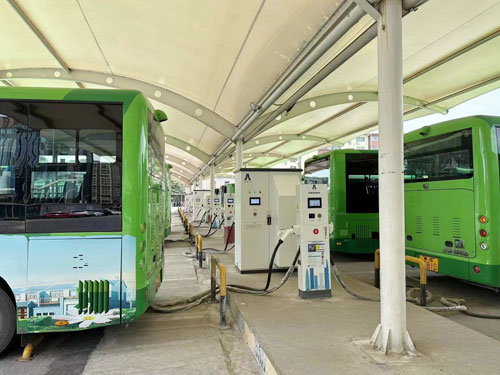- Visitors:0 Views
- Time:2025-01-09
ev charging time calculator amps
EV Charging time calculator amps is affected by many factors, including battery capacity, charging current, charger output voltage, charging efficiency, ambient temperature, and battery status. Therefore, in actual operation, it is necessary to estimate and calculate the charging time according to the specific situation.
To calculate the charging time of an ev, the parameter of ampere (current) is involved. It is also necessary to know the capacity of the battery (usually in ampere-hours Ah or milliampere-hours mAh) and the output voltage of the charger. The following is a simplified calculation process:
1. Basic formula
Charging time (hours) = battery capacity (Ah) / charging current (A)
Note: This formula does not take into account the output voltage and charging efficiency of the charger, but in many cases, in order to simplify the calculation, this formula can be used to preliminarily estimate the charging time. If you want to calculate more accurately, you need to consider the output voltage of the charger and the actual charging efficiency.
2. Correction formula considering voltage and efficiency
For more accurate charging time calculation, the output voltage and charging efficiency of the charger can be considered:
Charging time (hours) = (battery capacity (Ah) / charging current (A)) × (charger output voltage (V) / battery nominal voltage (V)) / charging efficiency
Among them, the charging efficiency is usually less than 1, indicating that there will be energy loss during the charging process.
The battery nominal voltage is an important parameter of the battery, which is usually marked on the battery.
3. Example calculation
Suppose there is an electric car with a battery capacity of 60Ah, which is charged by a charger with an output voltage of 220V and an output current of 30A, and the charging efficiency is 0.9 (90%).
Calculate using the correction formula:
Charging time (hours) = (60Ah / 30A) × (220V / nominal battery voltage (assuming 36V)) / 0.9
= 2 × (220 / 36) / 0.9
≈ 13.67 hours (the result here is an approximation, because other factors may affect the charging time during the actual charging process)
IV. Precautions
Battery capacity: The larger the battery capacity, the longer the charging time is usually required.
Charging current: The larger the charging current, the faster the charging speed is usually, but be careful not to exceed the battery's tolerance range.

Charging output voltage: It is necessary to ensure that the charger's output voltage matches the battery's nominal voltage.
Charging efficiency: Charging efficiency affects the actual charging time. Generally, the higher the charging efficiency, the shorter the time required.
Ambient temperature: Ambient temperatures that are too high or too low may affect the battery's charging performance, thereby affecting the charging time.
Battery status: The initial status of the battery (such as the remaining power) also affects the charging time.
If you want to know more about "EV Charging Time Calculator Amps", you can consult us online or email (sales@hjlcharger.com).
Recommended Reading
- Notice on the 2025 New Year's Day Holiday2024-12-31
According to the provisions of national statutory ...
- 2025 Qingming Festival Holiday Notice2025-04-01
According to the spirit of the "Notice of the...
- Countdown - 2 days丨2024 European Smart Energy Exhi...2024-06-17
Tomorrow is near, and the future is here! There ar...
- greece electric car chargers2024-01-16
For greece electric car charge
- electric car charging station south africa2023-11-24
For electric car charging stat
- charging infrastructure for electric vehicles in g...2025-02-24
Charging infrastructure for electric vehicles in g...
- how to use ev charging station2024-07-16
The process of using an electr
- How long does a 60kw charger take to charge2025-01-09
How long does a 60kw charger take to charge? Gener...
- ev charging station design2024-07-12
The design of an electric vehi
Hot Products
-
mobile ev dc charger
Mobile ev DC charger supports 380 volt A
Get last price
-
350kw ev charger
Specializing in providing a complete set
Get last price
-
floor-mounted charging st...
Are you looking for a reliable and effic
Get last price
-
ev charger station
Install EV charger stations in your mult
Get last price



